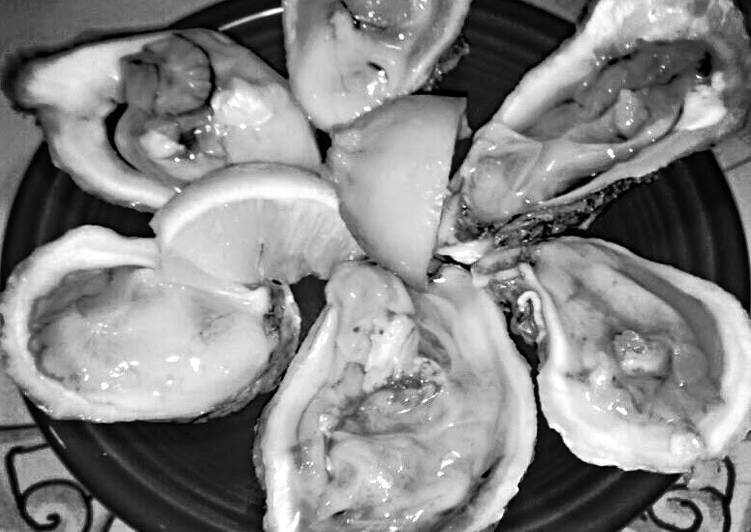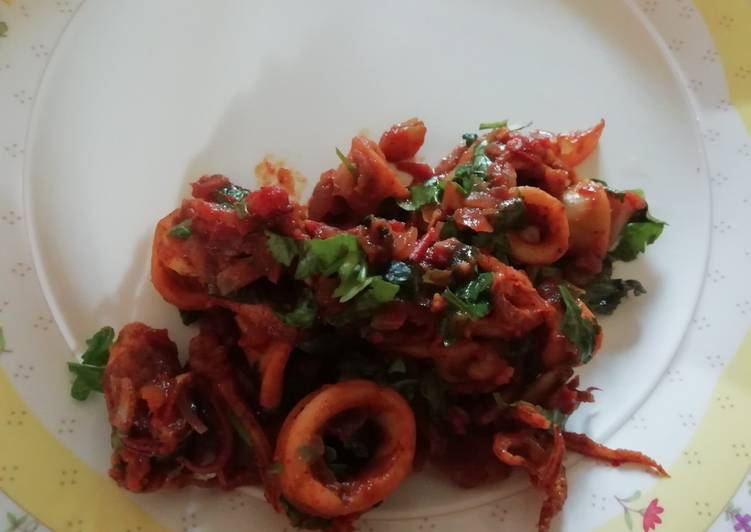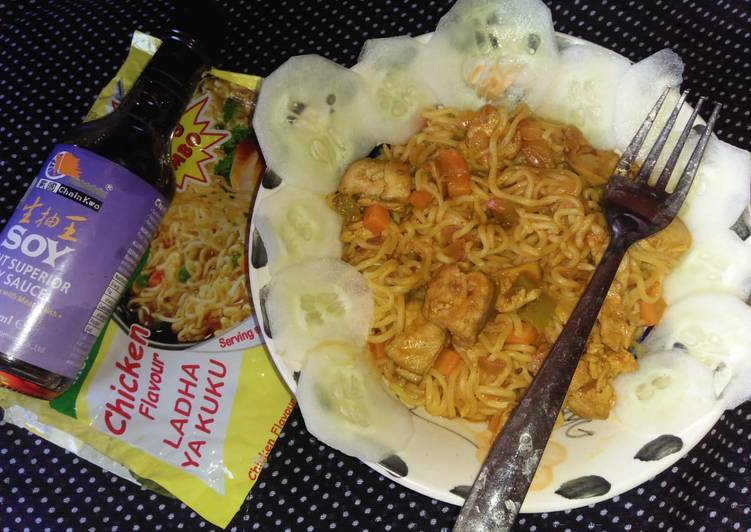
Hey everyone, it is me, Dave, welcome to our recipe site. Today, we’re going to prepare a distinctive dish, mike's seafood school 101. It is one of my favorites. For mine, I am going to make it a little bit tasty. This will be really delicious.
At Mike's Seafood, we are committed to satisfying our customers with great food and excellent service. Fresh Angus Beef Steak and seafood combinations, Oyster bar with fresh shucked Oysters and Steamer Clams out of our live tank. ► Воспроизвести все. Natalie Bomke. Последние твиты от Mike's Seafood (@mikesseafood).
Mike's Seafood School 101 is one of the most popular of recent trending meals in the world. It’s appreciated by millions every day. It’s simple, it is quick, it tastes delicious. Mike's Seafood School 101 is something that I have loved my whole life. They are nice and they look wonderful.
To begin with this recipe, we must first prepare a few ingredients. You can have mike's seafood school 101 using 6 ingredients and 9 steps. Here is how you can achieve that.
The ingredients needed to make Mike's Seafood School 101:
- Get 4 Lobsters
- Take 8 large King Crab Legs
- Get 24 large Shrimp Or Prawns
- Take 24 large Fresh Mussels
- Make ready 24 large Clams
- Make ready 16 Fresh Oysters
Vortex Ski Boat Demo. from Vortex Aerial. Channels are a simple, beautiful way to showcase and watch videos. All reviews seafood clams focaccia bread chowder salmon cioppino fresh fish crab louie ribeye cream cheese wait staff off. Great night out at the Auckland Seafood School.
Steps to make Mike's Seafood School 101:
- Cooking information on Lobsters, Alaskan King Crab Legs, Shrimp, Scallops, Oysters, Mussels and other Hard Shelled Clams.
- LOBSTER - - Preparation and Handling - - Bring a large pot filled with water deep enough to submerge the lobster by about 3 inches to a strong boil. - - Place lobsters head first into the pot, completely submerging them. - - Cover the pot tightly and return to a boil as quickly as possible. When water boils, begin counting the time. Regulate the heat to prevent water from boiling over, but be sure to keep the liquid boiling throughout the cooking time. - - Boil lobster for 10 minutes per pound, for the first pound. Add 3 minutes per pound for each additional pound thereafter. For example, a 2-pound lobster should boil for 13 minutes and a 1 1/2 pound lobster should boil for 11 1/2 minutes. - - Lobsters are done when the outer shell is bright red, when the meat is white, or when the two front antennae pull out easily. Do not overcook. - - Carefully remove lobsters from the pot with tongs. Be careful, they are very hot. Set in a large bowl for five minutes to cool before cracking.
- ALASKAN KING CRAB LEGS - - Preparation and Handling - - Properly wrapped Alaska King Crab can be stored in the home freezer at 0 degrees F or lower up to 4 months. For optimum quality, thawed crab or crab meat can be stored in the refrigerator 1 to 2 days. - - Cooking: - - Be careful not to overcook your king crab as it will reduce the king crab's prized texture and taste. - - Chilled: - - Place frozen crab legs in a shallow pan or on a tray. Cover with plastic wrap or foil and thaw, refrigerated, 8 to 10 hours or overnight. Simply cut up and eat chilled with fresh lemon and lime wedges. - - Steam: - - Place steam basket in large pot; fill pot with boiling water to depth of 3/4 inch. - - Place Alaska King crab legs in basket; reduce heat and steam, covered, about 5 minutes or until crab is thoroughly heated. Serve with plenty of melted butter and lemon. - - Broiled: - - Place Alaska King crab split legs in broiler pan, shell-side down; brush with butter or favorite sauce. - - Place pan about 4 inches from heat; broil 3 t
- SHRIMP OR PRAWNS - - Preparation and Handling - - To Peel & Devein Shrimp: - - Using your thumbs, split open the thin shell along the concave side, between the two rows of legs. Peel the shell away. Using a small knife, make a shallow slit along the back to expose the dark, veinlike intestinal tract. With a knife tip or your fingers, lift up the vein and discard. - - Boiled: - - Wash the fresh shrimp and peel & devein under running cold water. - - Salt the water lightly. You can also add some lemon juice and Old Bay Seasoning, if desired. - - Immerse in enough boiling water to cover the shrimp. - - Begin to calculate the cooking times as soon as water boils again. - - Reduce the heat. - - Simmer 3 to 5 minutes until shrimp turn pink and firm. Do not overcook, as it is extremely easy to do. - - Drain immediately and cool rapidly in cool water or a bowl of ice to prevent further cooking.
- SCALLOPS - - Preparation and Handling - - Plan to cook fresh-shucked scallops soon after they arrive. - - Keep shucked scallops in their own sealed container. They can be refrigerated for up to 2 days. - - Sea Scallops freeze better than most seafood. Simply place scallops in a plastic container and top with milk before freezing. - - Though they may be large, sea scallops still cook quickly, so keep a close eye on them. Recipes often suggest cutting them in half across the grain before cooking, but the large size makes sea scallops a natural for the grill. - - Remove the little tab-like [tough] muscle on the side of the scallop before cooking. Rinse scallops under cold running water to remove any sand or grit and pat dry using a paper towel. - - Serving Suggestions: - - 1 pound would be an appetizer serving four. Or a main course for two. - - Don't microwave scallops - they will explode at higher settings. - - Sautéd: - - Heat 2 tbs olive oil in a heavy nonstick skillet over medium high heat. - - Add scallops, and salt
- OYSTERS Preparation & Handling Store oysters at 33°-40° in a damp cold. Oysters can be kept in a bowl draped with a damp towel, but they should be arranged carefully so they lie flat. Otherwise their briny liquid may drain out. Stored properly they should remain alive for 5 to 7 days, but know that freshness deteriorates with each day. Oysters still in the shell are best eaten soon after they arrive. An oyster that doesn't close when you press on its shell is dead and must be discarded. Shucked oysters and their juices should be wrapped airtight and can be stored under refrigeration for 4 to 5 days or frozen for up to 2 months.°Do not store oysters where they could freeze, or where temperatures will fluctuate widely or reach over 40° F. °Do not store oysters submerged in melted ice water or other standing water. °Do not store oy
- MUSSELS - - Preparing & Handling - - Plan to cook fresh [live] mussels soon after they arrive. - - Store mussels in a mesh bag if possible. This will help keep the shells closed. - - Healthy mussels will gape slightly, but if you tap two together they should close quickly - - Discard any broken or open mussels, or ones that will not close when runner banded together. - - Do not suffocate mussels by sealing them in a plastic bag or airtight container. - - Never keep mussels in a bowl with melting ice. NEVER eat a mussel whose shell is unopened AFTER cooking. - - Serving Suggestions: - - Generally 1/2 to 3/4 pound per person is served as an appetizer and 1 1/2 pounds would be a main course for 1 person. - - Cooking: - - Steaming: - - Just before cooking mussels in the shell, they should be scrubbed under cold water. - - Place one to two inches of water, wine or a combination of these, and steam over high heat about five to seven minutes until shells open widely. - - For extra flavor add a dash of wine, garlic and/or butter. - - Dis
- LITTLE NECKS AND OTHER HARD SHELLED CLAMS - - Preparing & Handling - - Keep live clams cold in the refrigerator, covered with wet kitchen towels or paper towels until you are ready to cook and serve them. - - Shucked clams should be kept in tightly covered containers, immersed in their liquor; they, too, should keep for up to a week. - - You can freeze shucked raw clams in their liquor in airtight containers. Most types of frozen raw or cooked clams will keep for two months if the freezer is set at 32° or colder. Be sure to thaw frozen clams in the refrigerator and never at room temperature. - - Serving Suggestion: - - Serve 1/2 dozen clams on the half shell per person. - - Do not put clams in an airtight container or submerge them in fresh water, or they will die. Never expose clams to sudden temperature changes. - - Cooking - - Little necks are the best served raw on the half shell. They are also delicious steamed, [see steamer clam directions above] used in chowder or sautéed with sauces or in a favorite past
- Enjoy!
What a fun way to learn from the best, cook up a storm and enjoy a delicious meal without having to do the prep or cleaning up! We are located in Boone, NC. We serve only the best seafood, steaks, and chicken. My is that the microwave oven is the most useful invention of the twentieth century. It has made preparing food so much more convenient.
So that’s going to wrap it up for this exceptional food mike's seafood school 101 recipe. Thank you very much for reading. I’m sure you can make this at home. There is gonna be more interesting food in home recipes coming up. Remember to save this page on your browser, and share it to your family, colleague and friends. Thank you for reading. Go on get cooking!


